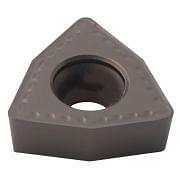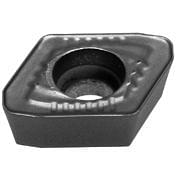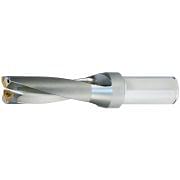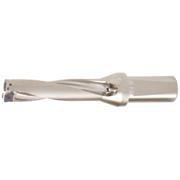Indexable drill bits
Insert drills are an advanced and highly efficient solution for modern machine shops. Mainly used for drilling operations in hard and tough materials, these drills are characterised by the presence of interchangeable inserts, which offer numerous advantages over traditional solid carbide drills.
Advantages of insert drills
- Durability and Strength: The inserts are made of the highest quality materials, such as tungsten carbide, which provide superior resistance to wear and heat. This translates into longer tool life and reduced downtime for frequent replacements.
- Cost-effectiveness: The ability to replace only the insert, rather than the entire drill, allows a significant reduction in operating costs. Inserts can be replaced quickly, minimising downtime and improving the overall efficiency of the production process.
- Precision and Hole Quality: insert drills provide greater precision when drilling due to the stability and rigidity offered by the insert itself. This results in higher quality holes with reduced tolerances, a crucial aspect in precision machining.
- Versatility: These tools are suitable for a wide range of materials, including alloy steels, stainless steels, cast irons, and light alloys. The ability to change the insert allows the drill to be adapted to different applications without having to replace the entire tool.
Technical characteristics of insert drills
- Insert geometry: The inserts can have different geometries e.g. positive, negative and double angle, to optimise penetration and chip removal depending on the material being machined.
- Advanced coatings: Inserts are often coated with layers of materials such as titanium nitride (TiN) or titanium aluminium nitride (TiAlN), which further improve wear resistance and heat dissipation.
- Modular attachments: insert drills can be equipped with modular attachments that allow easy insert replacement without the need to remove the tool from the machine.
In machine shops, insert drills are used for high-precision drilling operations in industries such as automotive, aerospace, mould and die manufacturing, and general mechanics. The ability to maintain tight tolerances and ensure consistent hole quality is crucial in these industries, where even the slightest imperfection can compromise the functionality of the final component.
Insert drills are indispensable tools in modern machine shops, offering durability, economy, precision and versatility. Thanks to their advanced technical features, these drills optimise production processes and guarantee high-quality results in a wide range of applications.








